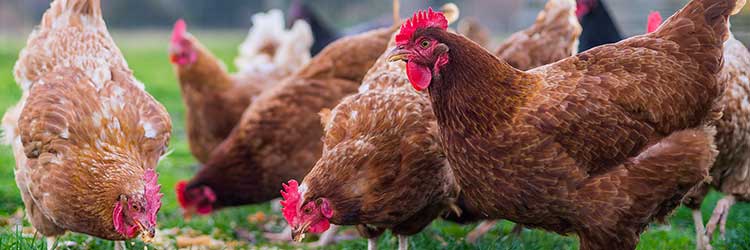Ramsey County services are not impacted by the Federal shutdown at this time.
Avian Influenza

Avian influenza viruses are spread to people through direct contact with infected animals or their environments. Person-to-person spread is extremely rare. There is no food safety risk associated with this virus; the current risk is for workers at commercial farms and owners of small urban flocks and herds.
More about Avian Influenza
- Minnesota Department of Health (MDH)
- University of Minnesota Extension
- Centers for Disease Control and Prevention (CDC)
The CDC is currently working with other federal, state and local public health agencies to investigate and monitor a multi-state outbreak of avian influenza. The CDC reports that these recent cases of highly pathogenic avian influenza were likely spread from dairy cows to humans. For the latest updates, visit the situational summary on the CDC's website.
CDC is continually:
- Supporting critical epidemiologic investigations with state and local partners to assess the public health impact of each H5 case.
- Working closely with state and local partners to conduct active surveillance for H5 cases.
- Monitoring for changes that might suggest H5 viruses are becoming better adapted to mammals and therefore might spread more easily from animals-to-humans or human-to-human or cause more severe disease.
- Monitoring for any viral changes that could make these viruses less responsive to flu antiviral medications or the available candidate vaccine viruses.
How to protect yourself
People should avoid direct contact with wild birds and other animals infected with or suspected to be infected with avian influenza A viruses. If you must have direct/close contact with infected or potentially infected birds or other animals, wear recommended personal protective equipment (PPE).
Protect your small flock from Avian Influenza
- Avian Influenza basics for urban and backyard poultry owners - UMN Extension
Sick backyard flock
If a backyard flock is suspected of having Avian Influenza, please call 320-231-5170:
- A team will arrive to test the flock.
- If infected the birds will be depopulated.
- The remains will be taken away for composting.
Hotlines